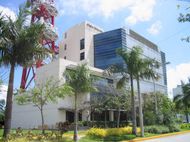Philippines Call Center and Business Process Outsourcing Continue to Soar
Philippines call center and the business process outsourcing (BPO) sector to continue providing employment in the face of the global economic slump where at least 50,000 jobs are available annually in the Philippines.
 Philippines Call Center - Business Process Outsourcing |
With job cuts one of the drastic consequences amid the global economic slowdown, the government has identified the Philippines call center, BPO and E-services as key drivers of the nation's economy as they generate investment and jobs contributing to poverty reduction and improving quality of life.
Recognizing the potential of the BPO in driving the economy the Philippines has focused on building the physical infrastructure to speed up the telecommunications network infrastructure by bringing the cost of connectivity down. Local government units especially in growth areas are encouraged in putting up broadband services aimed at basically attracting BPOs to come to the country.
The creation of the Commission on Information Communication Technology (ICT) to lead the ICT policy formation and implementation provides the appropriate policy and legal environment conducive to Philippines call center and BPO investments. The CICT functions include harmonizing and coordinating all public ICT initiatives.
The Philippines has also made sure that beyond building the appropriate environment for BPOs, development of human capital to provide world-class workers needed by the industry is a must. The Philippines is one of the highest among the various countries in the number of training facilities for computer programming and other computer-related courses.
The Technical Education and Skills Development Authority (TESDA) is likewise closely working with the Business Process Association of the Philippines or BPAP on training courses on BPO to further enhance English proficiency to help near-hires develop the skills needed to qualify for employment in a Philippines call center.
The Philippines is ranked among the most attractive off-shoring destinations in the world because of cost competitiveness and more importantly the country's highly trainable, English-proficient, IT-enabled quality manpower.
Cebu on the other hand, has emerged as the top BPO destination for global business outsourcing operations and Philippines call center; this is contained in media published reports in October last year. In 2009, Cebu ranked fourth after three cities in India and has grabbed the top slot now beating the cities of Shanghai and Beijing.
As of the second quarter in 2010, Metro Cebu has listed 22 existing call centers employing over 20,000 employees. Some of the big names are Accenture, ACS, Convergys, eTelecare, Teletech, PeopleSupport and Wipro. A total of 36 other BPOs, focusing on the non-voice business, also operate here. Non-voice operations refer to engineering design, content development, graphics/animation, software development, medical transcription, this is learned.
Though the US has been badly hit by the global financial meltdown, American call centers based in Cebu City have not been that affected, according to May Bulala, a call center manager of Convergys Cebu.
Bulala said their company, a US firm, is always looking for more qualified workers to work in Convergys.
Convergys is the largest BPO provider in Cebu City with over 3,300 employees throughout three contact center facilities.
The outsourcing sector has expanded beyond Philippines call center and IT to include a range of professional and business processes, including accounting, human resources, financial analysis, design engineering, animation, medical services, legal services, insurance processes, banking processes, map making, publishing, content creation and research.
[?] Subscribe To This Site |
| Advertise | | Share This Site | | Archive | | Privacy Policy |





